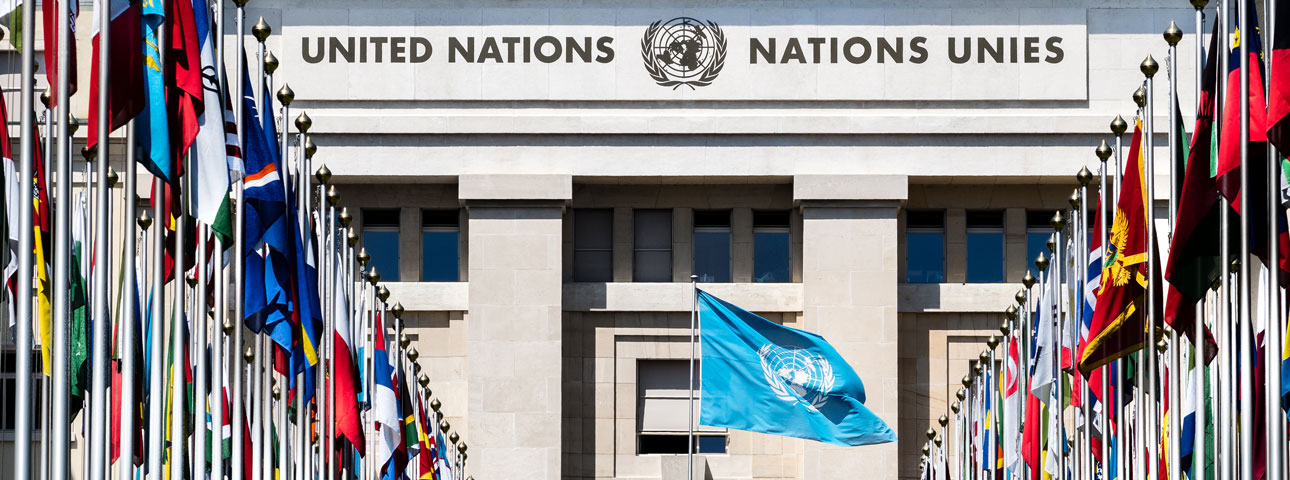Behind the Security Council Discussions
IDI experts answer questions on the balance of powers at the Security Council, whether any dramatic resolutions can be expected, and the extent to which the debate and international pressure effect the IDF.

Shutterstock
Under the UN Charter, the Security Council is the organ charged with the primary responsibility for preserving international peace and security. All UN member states (almost every state in the world) are obligated to comply with its decisions.
What is its role and what powers does it hold?
The Security Council is charged with maintaining international peace and security and promoting the resolution of international disputes by peaceful means. Its most dramatic powers are found under Chapter 7 of the UN Charter: When the Council determines that a particular situation constitutes a threat to or breach of international peace and security, or an act of aggression, it is empowered to impose sanctions aimed at enforcing its decisions. First and foremost, this refers to non-forceful sanctions, such as economic sanctions, suspension of international travel or an arms embargo. If, however, the Council concludes that these measures are not adequate, it is empowered to permit the use of military force to implement its decisions.
What is the balance of power on the Security Council?
The Security Council is comprised of fifteen members—five permanent members (the United States, Great Britain, France, Russia, and China,) and ten non-permanent members who serve for two-year rotating terms, according to a key based on geographic location. For a resolution to pass, it must have both the support of at least nine member states, and cannot be vetoed by any of the permanent members. As a permanent member and ally of Israel, the United States has frequently (but not always) exercised its veto to block the passage of resolutions inimical to Israeli interests.
Faint calls for a cease-fire
Security Council resolutions on past violent eruptions occurring in the context of the Israeli-Palestinian conflict have generally consisted of "soft" calls for ceasing hostilities and for the provision of humanitarian provisions, rather than issuing binding demands.
One example is Resolution 1860, which the Security Council approved on January 8, 2009, during Operation Cast Lead. It called for an immediate cease-fire, followed by the withdrawal of Israeli forces from the Gaza Strip; it also referred to various humanitarian issues. In addition, the resolution called on states to assist in arranging and guaranteeing long-term calm, including measures to present the illicit transfer of arms and ammunition to the Gaza Strip. Israel did not accept the call for an immediate cease-fire and did not declare a unilateral cease-fire until January 17. The resolution's limited impact was also reflected in the fact that the Security Council did nothing when the smuggling of arms and ammunition to Gaza continued.
Can we now expect a dramatic resolution authorizing the Security Council to take steps to enforce its decisions?
No binding resolution under Chapter 7 of the UN Charter is expected to pass at present; at most – a recommendation may pass calling for the earliest possible end to the violence and addressing the humanitarian crisis in the Gaza Strip. There may also be a call to make progress towards a just and comprehensive solution to other aspects of the conflict, such as safeguarding of the Holy Places and refraining from eviction of the families in Sheikh Jarrah from their homes.
When in the past have there been strong resolutions concerning Israel?
Resolution 1701, at the end of the Second Lebanon War, for example, noted that the situation endangered international peace and security. It empowered UNIFIL to employ force to implement its mandate, to prevent hostile activity from the territory of its operation between the Litani River and the Israeli border, and to protect civilians from immediate harm.
To what extent does international pressure influence Israel, and especially- the IDF?
In the past, international pressure spurred Israel to agree to a cease-fire after tragic large-scale incidents such as the bombardment of the UN facility in Kafr Kana in Lebanon (during Operation “Grapes of Wrath” in 1996). The Security establishment in Israel keeps a close watch on the international arena, because the IDF’s freedom of action depends on international legitimacy for its military operations, and the Security Council deliberations indicate the outer limits of that legitimacy.
What role does the United States play?
The U.S. position at the Security Council and elsewhere is of critical importance for Israel. As a permanent member of the Security Council and ally of Israel, the U.S. has frequently (but not always) exercised its veto power to prevent the passage of resolutions inimical to Israeli interests. The last time the U.S. did not thwart the passage of a resolution that Israeli found problematic, was in relation to Resolution 2334 which was passed in 2016, in the waning days of the Obama administration. That resolution proclaimed that the settlements are illegal and that in their contacts with Israel, states should make a distinction between its sovereign territory and the land occupied by Israel in 1967, including East Jerusalem.
